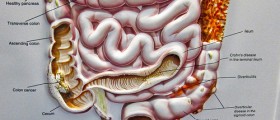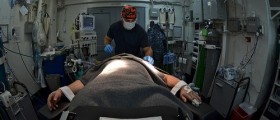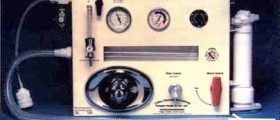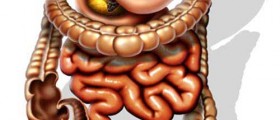
About colonoscopy
Colonoscopy is performed whenever there is a need to inspect the colon carefully and thoroughly in order to determine the presence of any abnormalities. It is an endoscopic procedure, which means it uses a flexible tube that has a CCD camera or a fiber optic camera on one end. The tube is inserted into the colon through the anus. Because this is always uncomfortable, the patient is usually given some sedatives and local anesthetics. Colonoscopy can also be done under general anesthesia.
This procedure is considered a vital part in prevention of colon cancer, because it can detect it in early and treatable stages. Colonoscopy is also done to examine the causes of gastrointestinal problems such as irregular bowel habits, pain, bleeding from the anus and weight loss.
Colonoscopy risks
Colonoscopy is generally a safe procedure and the risks associated with it are very low. It is estimated that there is a 0.35% chance that something will go wrong during or after routine colonoscopy. The risks are slightly higher in colonoscopy that includes removal of polyps, which are tissue growths on the walls of the colon.
Perforation is the most serious risk associated with colonoscopy and it has been known to happen to patients who have more than 60 years of age. This complication is rare and occurs when an instrument used in the procedure makes a tear in the colon, or as a result of excessive inflation of the colon. Mild cases of perforation can be treated with antibiotics but the severe ones require surgery.
Some bleeding can be expected in cases when polyps are removed during colonoscopy. This happens to one out of every 1000 patients and in most cases the bleeding resolves in a few days on its own.
Another complication from polyp removal is postpolypectomy syndrome, which causes abdominal pain, fever and elevated white blood cell count.
Infection is a risk associated with almost every procedure, and colonoscopy is no exception. It happens if the instruments have not been sterilized properly, but this today very rare.
Finally, any procedure involving the use of anesthetics carries the risk of an allergic reaction or anaphylactic shock.
- www.nhs.uk/conditions/bowel-cancer-screening/Documents/Having-a-colonoscopy.pdf
- www.betterhealth.vic.gov.au/health/conditionsandtreatments/colonoscopy
- Photo courtesy of CSIRO by Wikimedia Commons: commons.wikimedia.org/wiki/File:CSIRO_ScienceImage_11130_CSIROs_colonoscopy_simulator_developed_using_the_latest_computer_gaming_technology.jpg

















Your thoughts on this
Loading...